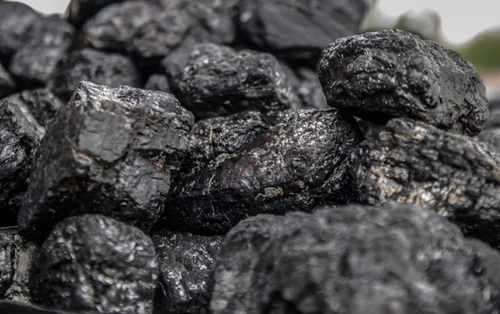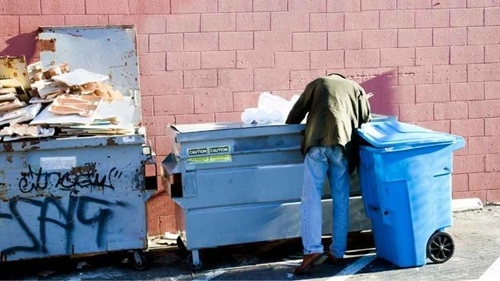Burning coal has a long history in America — once the backbone of home heating and electricity generation. But as environmental and health concerns have grown, coal burning has come under heavy legal restriction. While it isn’t completely illegal to burn coal in the United States, federal, state, and local laws strictly regulate when, where, and how it can be burned.
Here’s a detailed breakdown:

Federal Law: The Clean Air Act and EPA Regulations
The Clean Air Act (CAA), enforced by the Environmental Protection Agency (EPA), is the key federal law regulating coal burning in the U.S.
Under the CAA, burning coal is not outright illegal, but the emissions it produces — including sulfur dioxide (SO₂), nitrogen oxides (NOₓ), carbon monoxide, particulate matter, and mercury — are strictly controlled.
Industrial and Commercial Use
- Power plants, factories, and industrial facilities that burn coal must use EPA-approved emission control technologies (like scrubbers or filters).
- They must also obtain air permits and comply with National Ambient Air Quality Standards (NAAQS).
- Violating these standards can result in civil fines up to $50,000 per day and criminal penalties for intentional violations.
Residential Use
At the federal level, it’s generally not illegal for private citizens to burn small amounts of coal (such as in a home furnace or stove). However, the EPA discourages it and many states ban or heavily restrict residential coal burning because of air quality and health concerns.
State and Local Laws on Coal Burning
While federal law focuses on pollution standards, state and local governments decide whether individuals or businesses can burn coal at all.
States with Strict Coal Restrictions
- California: Bans most forms of coal burning in residential and commercial settings. The California Air Resources Board (CARB) enforces strict air-quality rules that effectively prohibit burning solid fuels like coal.
- New York: Prohibits coal-burning heating systems in most residential and commercial buildings under its Clean Heat program.
- Massachusetts and Connecticut: Have phased out coal heating and power generation, citing environmental and public health risks.
States That Still Allow Limited Coal Use
- Pennsylvania, West Virginia, and Wyoming allow coal burning in certain rural or industrial areas. However, residents must comply with state air-quality regulations and open burning bans.
- Even where it’s allowed, coal-burning stoves or furnaces often require EPA certification for efficiency and emissions.
Environmental and Safety Risks
Coal releases far more pollution than wood or natural gas. Burning it produces:
- Carbon dioxide (CO₂) – a greenhouse gas that contributes to climate change.
- Sulfur dioxide (SO₂) – a major cause of acid rain.
- Fine particulate matter (PM2.5) – which can cause asthma, heart disease, and lung cancer.
Because of these hazards, the U.S. has been steadily phasing out coal as an energy source. Most states now ban open burning of coal outside of industrial facilities.
Burning coal without a proper permit or pollution control system can result in:
- Air pollution citations
- Health and safety fines
- Possible misdemeanor charges for violating local air-quality ordinances
Legal and Safe Alternatives to Burning Coal
If your goal is to heat your home or dispose of fuel safely, here are legal alternatives to burning coal:
- Natural gas or propane furnaces – efficient and widely approved.
- Electric heating systems – cleaner and increasingly affordable.
- EPA-certified wood or pellet stoves – legal in most areas with lower emissions.
- Municipal energy programs – many cities offer incentives to replace coal-burning systems with cleaner technology.
Switching to one of these options helps avoid fines and supports local air-quality goals.
FAQs About Burning Coal in the U.S.
Q. Is it illegal to burn coal in your home?
It depends on your state. Some rural states still allow it, but many — including California, New York, and Massachusetts — have banned residential coal burning due to air quality concerns. Always check local ordinances.
Q. Can you burn coal in a fireplace or stove?
Only if it’s EPA-approved equipment designed for coal and permitted in your jurisdiction. Using coal in an unapproved appliance may violate local fire or air safety codes.
Q. Is burning coal considered air pollution?
Yes. The EPA classifies coal combustion emissions as major pollutants that can harm human health and the environment.
Q. What are the penalties for burning coal illegally?
Penalties vary but can include fines from $500 to $50,000 per day, depending on whether you violate federal, state, or local air quality laws.
Q. Are there cleaner alternatives to coal?
Yes — natural gas, electricity, and renewable energy sources (like solar or geothermal) are legal, cleaner, and often cheaper long-term.
Conclusion
While burning coal is not explicitly banned under federal law, it’s heavily restricted and increasingly illegal at the state and local levels. Environmental protection agencies strictly regulate coal combustion due to its high pollution levels and health risks.
If you’re considering burning coal — whether for heat or industrial use — you must first check with your state’s environmental agency and local fire department. In most parts of the U.S., the law and public health policies strongly favor cleaner, safer energy alternatives over coal.

